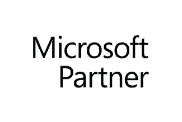After a long beta testing wait, Adobe Photoshop for the Web (which includes Firefly generative AI features) is now available as part of all Photoshop plans.
Major Milestone
The release of Photoshop on the web, which Adobe describes as “a major milestone” offers creators who are new to Photoshop “a streamlined user experience” (with easier navigation) and gives existing Photoshop users access to new tools like Generative Fill from any web browser. In short, it’s a simpler version of Photoshop, but it offers the convenience of being accessible from anywhere (with an Internet connection), and the power of Adobe Firefly’s generative AI features.
Web
The advantages for users of having a cloud-based version of Photoshop are that download / installation aren’t necessary, it’s easy to access and get started, users can pick up where they left off on any Photoshop document on the web, and users can choose to jump back into the desktop app with the click of a button.
Also, the web version enables collaboration on projects through by allowing users to invite others to collaborate, even if they don’t have a Photoshop subscription, simply by sharing a link.
Made Easier For New Users
With users able to invite non-subscribers, i.e. new Photoshop users, it makes sense that Adobe has tried to simplify Photoshop. Some methods that it says it’s achieved this include grouping the tools in the tollbar together based on workflows, thereby making it easier to retouch a portrait, select an object in an image, or apply a quick action. Also, Adobe says it’s added tool names to the toolbar for users who aren’t familiar with Photoshop tool icons.
Existing Users Can Switch To Old Desktop Look
Not wanting to alienate its existing users, Adobe has provided the option in Photoshop on the web for existing and experienced Photoshop users to hide the new view and work with the old, familiar desktop-style interface.
Generative AI
One of the recently introduced value-adding additions to Photoshop desktop (which will now be available in Photoshop on the web) is the Adobe Firefly family of creative generative AI models. In short, users can use a text field (just as with ChatGPT and other chatbots and image generators) to describe how they want to change and add to an image and features like Generative Fill and Generative Expand will do it. Obviously, this saves a great deal of time and effort in having to learn how to use all the Photoshop tools.
Adobe says: “These features allow you to add, expand, or remove content from your images non-destructively, while magically matching perspective, lighting, and style of your image to deliver truly mind-blowing results.”
The Contextual Task Bar Too
First introduced in June in Photoshop desktop, Adobe is also including its Contextual Task Bar with Photoshop on the web. This AI-powered on-screen menu gives users recommendations designed to help reduce clicks and save steps in common workflows in design projects, e.g. replacing the background of an image or adjusting the lighting and tone of images. This again is a way to make Photoshop more user-friendly to all and save time, while still giving a professional-looking output.
How Much?
Now the (long) beta phase is over, a free-to-use version is no longer be available, and Photoshop on the web paid plans for the app start at $9.99.
What Does This Mean For Your Business?
Adobe’s Photoshop has enjoyed being an industry-standard professional designer’s tool for many years but in recent times it’s seen some strong competition from cheaper alternatives such as Affinity. It’s also seen competition from ready to use, template-based alternatives such as Canva, from free image editors like GIMP, and from free, online (more limited but still valued) touch-up alternatives like Pixlr.
The huge, disruptive game-changer has been generative AI and the introduction of AI image generators, which enable users to quickly create incredible-looking images with no need to spend time learning how to use all the tools that would normally be needed to create them. Many of us are now also used to using cloud-based apps where work is automatically saved (pick up where you left off) and accessible from anywhere. Of course, Photoshop is a trusted brand, most strongly associated with professional/business use, with its own considerable use base, but it has very quickly (like the major Photo vendors), found itself in an environment where there are many good (and cheaper, and free) alternatives. It’s also an environment where there are a large number of potential customers who don’t want to spend a lot of money and time learning just to carry out basic image tasks on complicated and expensive professional tools, or where they can still quickly meet their needs and get professional looking results with trusted alternatives e.g., Canva, or simply by typing a description into an AI image generator.
Photoshop on the web (with Adobe’s generative AI Firefly tools thrown in) represents a way for it to compete and stay relevant in a rapidly changing market by trying to meet lots of customer needs in one go. For instance, it’s online (convenience), it has AI (you don’t have to learn the tools), it allows collaborative working even with non-subscribers, it’s simplified and more user friendly but experienced and invested users can have the old desktop look if they want (retention), it’s SaaS, and more.
Adobe appears to be looking primarily for new users here and as a leading brand in the photo editing world that’s packaging generative AI with cloud-based convenience it will have high hopes for its long-awaited Photoshop on the web.




